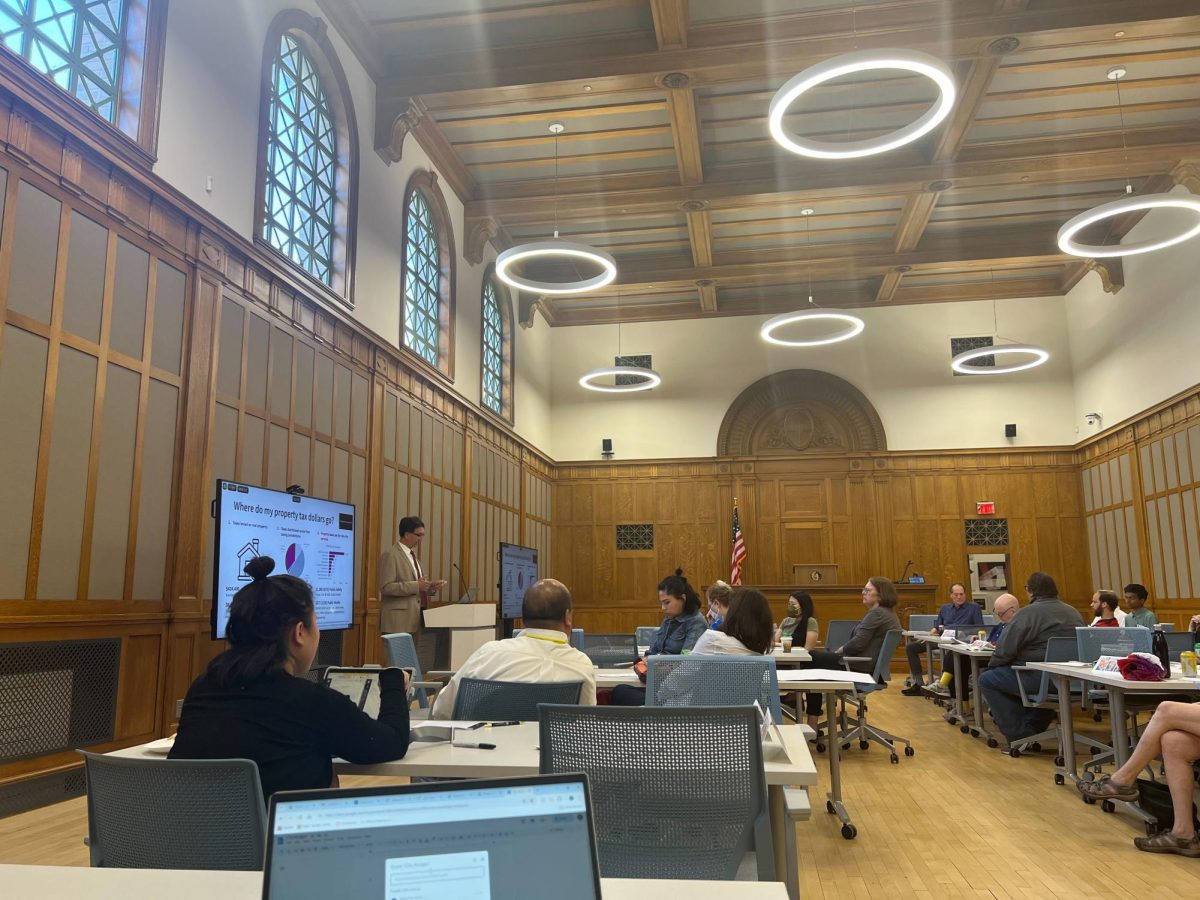A Black man filed a civil rights lawsuit against Madison police officers for their use of excessive force, according to the Wisconsin State Journal.
The lawsuit is leveled against the City of Madison in addition to the MPD officers involved and was filed early October in the U.S. District Court in Madison. It seeks damages from MPD Officers Andrew Slawek and Chad Joswiak, former Officer Ted Fondrk, Sgt. Joe Engler and then Acting Chief Vic Wahl.
The officers attacked David Clash-Miller on June 3, 2019 without provocation when he was 17 years old and having a mental health episode, according to the lawsuit.
Dane County Board of Supervisors ask Sheriff’s Office to stop no-knock warrants
Clash-Miller had not taken his prescribed medication that day and was sent home from school for behaving irrationally, according to the lawsuit. He then let the officers into his home for a police call. The officers’ use of excessive force was captured by a home security video camera.
The lawsuit comes a year after the nationwide Black Lives Matter protests in 2020, which took place after the murder of George Floyd. Urban Triage Marketing Coordinator Aja Shumate said the BLM movement last year brought attention to many injustices Black people face.
“A lot of Black people felt that they weren’t alone in these situations, and they weren’t the only person this has ever happened to,” Shumate said. “It really shed light to police violence and how it has affected so many Black people in Wisconsin and across the country.”
This new focus on police violence sparked multiple policy changes in Wisconsin. In April, a bipartisan group responsible for proposing changes to Wisconsin policing laws suggested limiting the use of choke holds in addition to asking the Wisconsin Department of Justice to gather data on the use of no-knock warrants that allow the police to enter a property without announcing their presence or purpose to occupants, according to Wisconsin Public Radio.
Dane County Board supports $10 million in 2022 budget for behavioral health crisis center
In August, Gov. Tony Evers signed Senate Bill 120, now called the 2021 Wisconsin Act 75. This bipartisan bill states officers must “use force that is objectively reasonable based on the totality of the circumstances,” only using deadly force as a last resort.
Many Wisconsin activists welcome these new policy changes, but the improvements are less impactful than they expected due to exceptions and exemptions in the bills, University of Wisconsin Professor Emerita of Sociology Pamela Oliver said.
It is uncertain whether these policies will actually eliminate issues surrounding police violence, Oliver said.
“Do the laws actually help or do you need, also, to do something that makes the police more accountable to follow the laws?” Oliver said. “That’s the big debate that people are having.”
In 2020, the City of Madison created the Madison Police Civilian Oversight Board. The board was created to bridge the gap between the police department and marginalized Madison communities, UW Professor of Law and Civilian Oversight Board member Keith Findley said.
It does so by communicating directly with marginalized communities through listening sessions with groups and individuals, Findley said. Board members are also assigned to ask for input from various segments of the community.
“The idea is that in a free and democratic society, it’s the people who should have some control over and some say in how they are policed,” Findley said.
Additionally, the board aims to implement the 177 recommendations for police reform from the Ad Hoc Committee, Findley said.
Still, these changes do not impact police training. For the most part, police officers are not qualified to respond to mental health crises on their own, Shumate said.
“I think that it can be very scary, things get out of hand and, most of the time, police are either very minimally trained or not trained at all on how to deal with these types of calls,” Shumate said.
Many community members are calling for trained mental health professionals to accompany the police to mental health calls, according to reporting by 27 WKOW. In response, several Wisconsin police departments are hiring social workers and mental health professionals to respond to mental health calls, according to Wisconsin Public Radio.
This would especially benefit people of color who may fear or distrust the police due to generational trauma, Shumate said.
The 2020 changes in Wisconsin policing legislature have sparked change, but the process has been slow, Oliver said.
“It’s not that there are no effects,” Oliver said. “People are paying attention, but it’s certainly the case that change happens very, very slowly.”
In addition to the new police bills, Evers vetoed legislation that would penalize counties for defunding their police departments. The legislation intended to cut state funding if the money spent on law enforcement or emergency services was decreased, according to the WSJ.
When activists say they want to defund the police, they are calling for a variety of changes, Oliver said. Defunding the police could mean increasing training for police officers and finding new ways to hold them accountable for their actions, Oliver said.
As Clash-Miller’s lawsuit continues, Shumate hopes he will get the justice he deserves.
“It’s important that we continue to advocate for David and continue to show him our support so that he knows he’s not alone,” Shumate said.


















